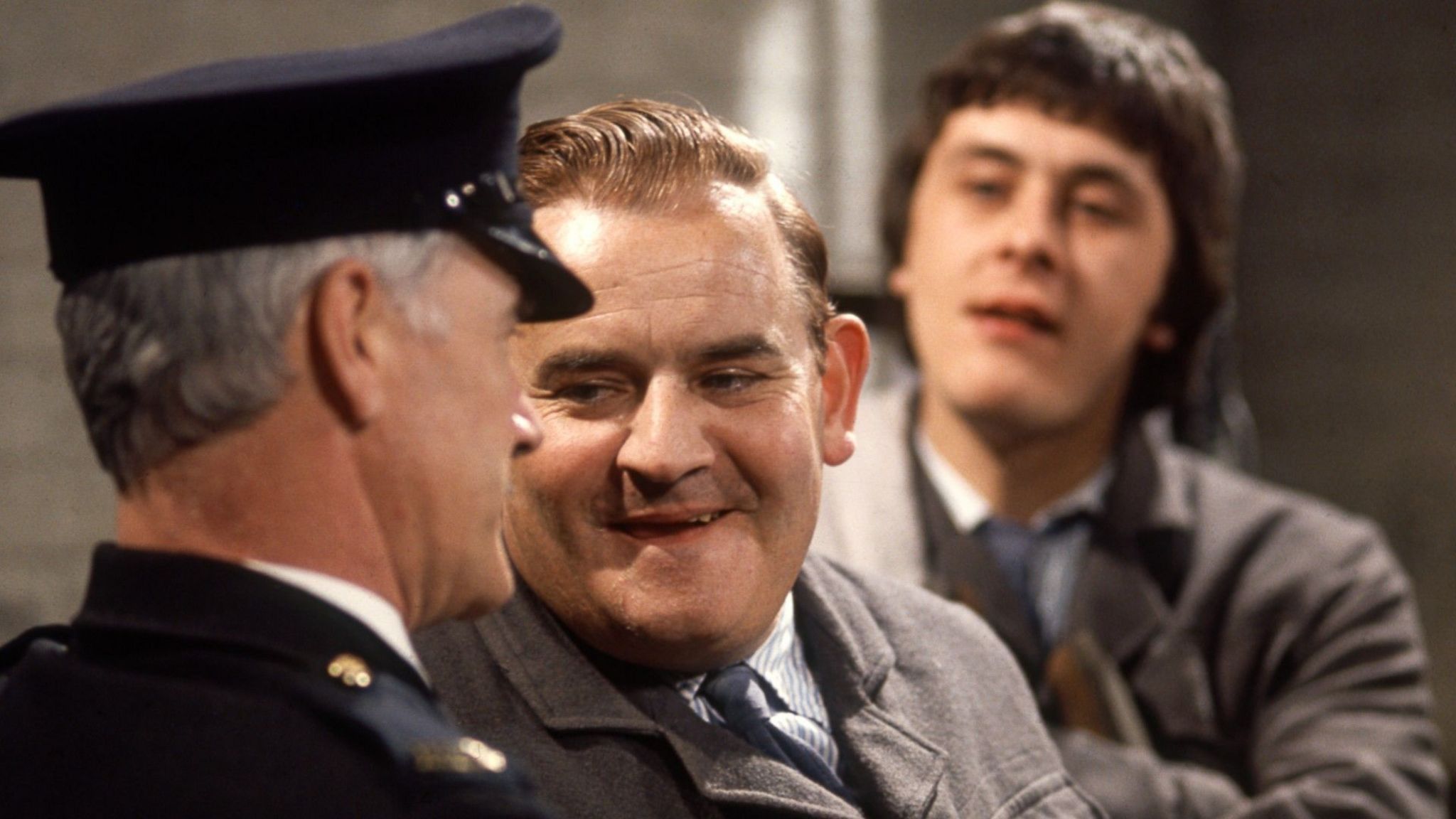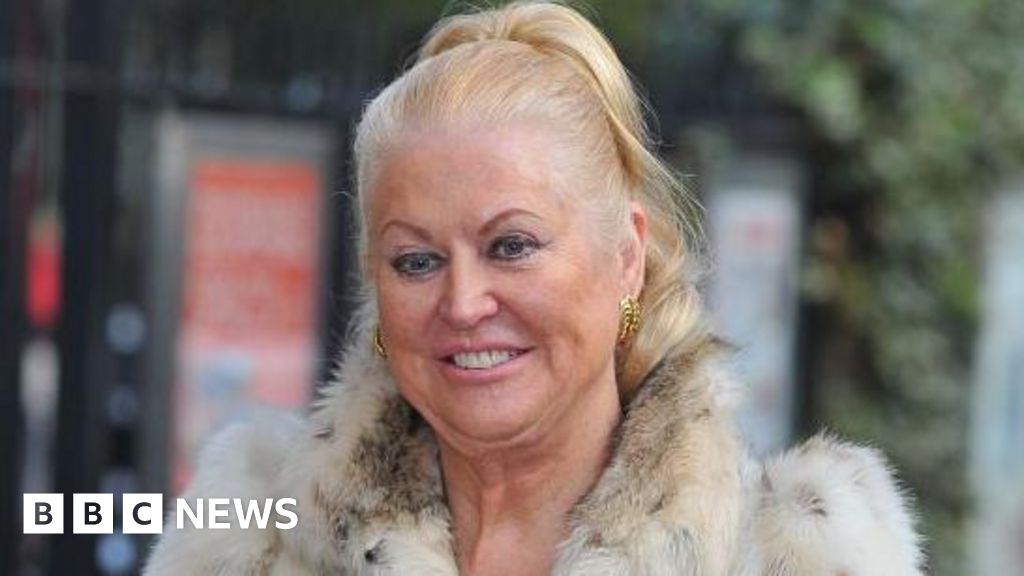ARTICLE AD BOX

Ronnie Barker's character Norman Stanley Fletcher thrived on beating the prison system
Porridge has been such a part of British comedy’s staple diet for 50 years that it’s easy to overlook its rather unusual and unfunny situation.
First broadcast on 5 September 1974, its writers Dick Clement and Ian La Frenais were initially attracted to the comedy potential of a jail setting as “the ultimate captive situation”.
However, they struggled to get beyond the awful and depressing aspects of prison life until they hit upon the idea of “little victories” as the key to creating a classic.
Comedian Ronnie Barker stars as Norman Stanley Fletcher, "an habitual criminal who accepts arrest as an occupational hazard" serving time for an unspecified crime in the fictional HMP Slade.
With Richard Beckinsale as his impressionable cellmate Lennie Godber, the series has a colourful rogues’ gallery of prisoners played by a cast including Brian Glover, Tony Osoba, Christopher Biggins, David Jason and Peter Vaughan.
Three classic episodes on BBC iPlayer
Fulton Mackay’s strict disciplinarian Mr Mackay and Brian Wilde’s gentle Mr Barrowclough show prison life at its extremes, while ‘Fletch’ devotes his time to getting one over on the oppressive system to make his five-year sentence more bearable.
The character of Fletcher first appeared in a one-off programme, Prisoner and Escort, as part of Barker's 1973 series of TV pilots, Seven of One.
Barker told Comedy Connections in 2003: “It was to be Six of One, so I could then do Half a Dozen of the Other, but some wise executive added another script which put paid to that as a title.”
Renamed Porridge after a 1950s slang term that referred to the traditional prison breakfast, the full series was an immediate hit with viewers.
Blue Peter's John Noakes goes behind the scenes during the filming of Porridge
By 1977, the sitcom was so popular across all age groups that children’s programme Blue Peter took a behind-the-scenes look at filming that was under way at the famous Ealing Studios.
Presenter John Noakes marvelled: “It takes them two days to build Slade Prison and half a day to pull it down again.
"I was amazed at how real everything looked, even when I was close to it.
"I really believed that this wall was solid brick and mortar until somebody walked past and made it waft in the breeze which showed that the whole thing was hand-painted cloth.”
Noakes managed to catch up with Ronnie Barker and ask him if he received any fan-mail from prisoners.
Barker replied: “Well, they're not allowed to watch it, unless they're privileged prisoners. They're not allowed to watch after 7 o'clock. They all love Blue Peter because they see a lot of that.”
Writers Dick Clement and Ian La Frenais on finding comedy in serious subjects
Porridge was a family-friendly show but it didn't shy away from the grind of life behind bars.
While writers Dick Clement and Ian La Frenais admitted creating the first episode was a struggle because prison is no laughing matter.
The pair visited several prisons as part of their extensive research, and it was one particular idea that unlocked the story for them.
Speaking on The Lively Arts in 1976, La Frenais said: “We thought about it and one or two key phrases came to mind, one of which was ‘little victories’; winning victories against the system, against the odds and it seemed to us a sort of basis which encouraged us to write the series.”
Clement said the character of Fletcher evolved from the idea of him being a survivor who saw prison as an “occupational hazard”.
“If you're going to be a professional criminal, you'll be in the nick from time to time, and while you're there you make the best of it and don't bleat about it,” he said.
“There was no moaning about it at all, and he just got on with making life as tolerable as possible, as a professional survivor.”
Richard Beckinsale was interviewed in 1976 alongside Rodney Bewes, who starred in Clement and La Frenais' The Likely Lads
Barker said the scripts written by Clement and La Frenais were “always very, very funny”.
“I would add the odd gag, but it was practically the finished article on the first read-through,” he said.
It wasn’t until the third episode of the first series, A Night In, that Fletcher found himself reluctantly sharing a cell with Lennie Godber, a naïve first-time offender played by Richard Beckinsale.
With Fletcher and Godber sharing most of the screentime, La Frenais said the episode was meant to convey the oppressive feeling of cell doors slamming shut.
He said: “Very early on, we said we’ve got to face the reality of prison. Let’s start off by writing the most restricting episode of all.”
Interviewed in 1976, Beckinsale said: “Dick and Ian decided that it would be a good idea just to write half an hour in one place with just two characters, just to see if it would work.
"That's where the character came from, just that one exercise of, can we do this, of just having two people in a cell talking to each other.”
The strong supporting cast included Peter Vaughan, who portrayed the menacing villain Harry Grout
Fulton Mackay's strict disciplinarian prison officer character fought a losing battle against Fletcher and Godber's schemes
Fletcher and Godber’s double act meant plenty of comical scrapes, either with other inmates or the prison officers at Slade such as the formidable Scot Mr Mackay.
Actor Fulton Mackay said he had based his portrayal of the character on an Army physical training instructor he had encountered during World War Two.
Denying he was in any way similar to his Porridge character, he said: “The nice thing is, a lot of people playing roles like this get into bother in pubs and things, but everybody just laughs at me because they know Fletcher gets the better of me all the time.”
Barker called time on Porridge after three series, fearing that he might become typecast as Fletcher.
He said: “I've seen actors stay too long in one character and then they can't get rid of them. I can't help thinking of Harry H Corbett as Steptoe - it happened to him.”
However, he was talked into reprising the character in Porridge sequel Going Straight. Instead of winning little victories over the prison system, Fletcher now had to deal with the outside world.
Barker said: “It was fun but it didn't seem to please the public as much. They missed the threat, I think, and the discipline of prison.”
Patricia Brake played Fletcher's daughter Ingrid in Porridge and its sequel, Going Straight
Nationwide visits the set of the feature-length Porridge film in 1979
Fletcher was back in prison one last time for a 1979 big-screen adaptation of Porridge.
This time it was shot in a real-life jail that was under renovation, and tea-time current affairs programme Nationwide was on hand to ask if Porridge’s depiction of prison life was at all realistic.
The prison population may be ageing today, external, but back in 1979, HMP Chelmsford assistant governor Rannoch Daly said jail was "essentially a young man's game”.
“The majority of prisoners are between 17, 18 and 25, 26, so Fletcher being in his early 40s is unusual for a prison," he said.
“He's really too bright to keep coming back again and again and again - somebody like Fletcher would have given up crime a while ago.”
Richard Beckinsale died at the age of 31 just weeks after filming was completed.
Looking back in 2003, two years before he died at the age of 76, Ronnie Barker was proud of the work they all did.
He said: “Many people have said that Porridge was the best thing I ever did and I think they're right really. The reason it has endured so well is that it doesn't date.”

 9 months ago
31
9 months ago
31








 English (US) ·
English (US) ·